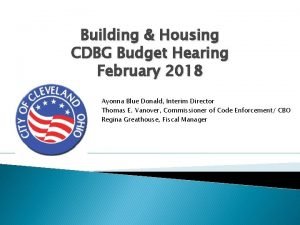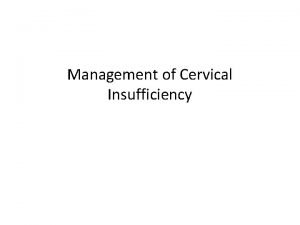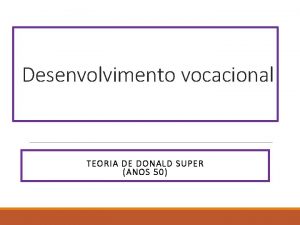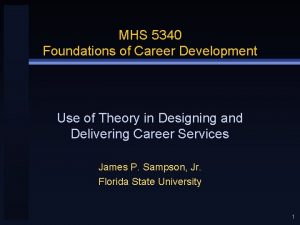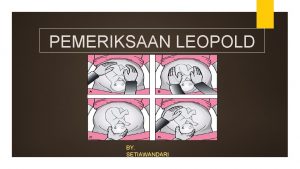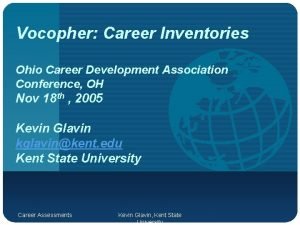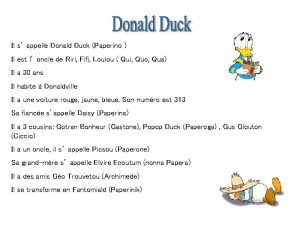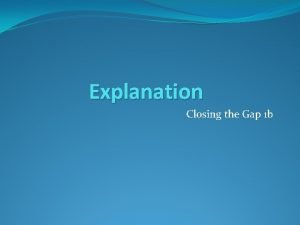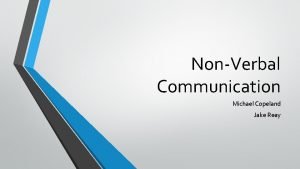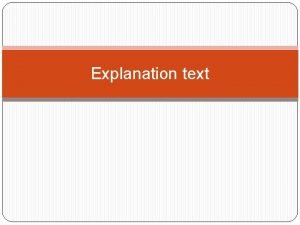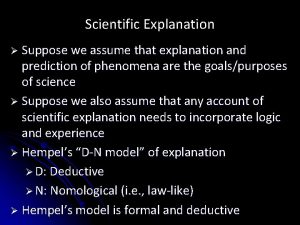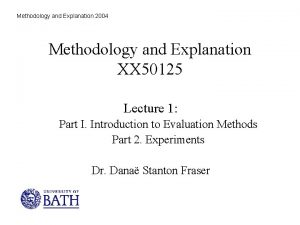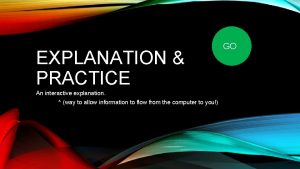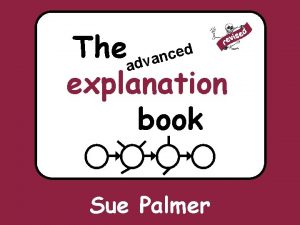DONALD T REAY MD Explanation Dr Reay was


























- Slides: 26

DONALD T. REAY, MD Explanation: Dr. Reay was my esteemed mentor, Past President of NAME, and winner of the Helpern Award in 2015. Upon his death in November 2018, his family gifted some of his personal papers to me, and to Dr. John Howard, my partner in Spokane. Included among the papers were several Kodachrome slide presentations. In looking at the presentations, it occurred to me that his lecture on court testimony was still as pertinent today. I have no knowledge of when or why he originally gave this presentation. I have copied the slides verbatim. Sally S. Aiken, MD 2019

THE ORIGINAL PRESENTATION

THE PATHOLOGIST AS A WITNESS DONALD T. REAY, MD

• Physicians are frequently called upon to testify • It’s more a matter of when you will be called, not if you will be called • It is easy to testify once you are familiar with the basic sequence and know the rules • You should accompany an experienced witness on several occasions to see how it is done • Thorough preparation before your first few trials should prevent unfavorable experiences

• In the adversarial system, each side puts on its best performance • Trial before the Court versus trial before the Jury • Jury (selection and screening, size, function, educational level, general working guidelines) • The judge ensures that the trial is conducted properly, according to the rules • Expert witness vs Fact Witness (Expert witnesses are allowed to include opinions and conclusions

AS SOON AS YOU KNOW YOU ARE NEEDED RECORD NECESSARY BASIC INFORMATION • Name of the victim or deceased • Case and chart number • Style of the case • Jurisdiction and Court location • Which attorney is calling you • Which side the attorney represents • Address, phone and FAX numbers of attorney • The name of opposing council • General nature of the proceeding • When and how to get there and parking

AS SOON AS YOU KNOW YOU ARE NEEDED RECORD NECESSARY BASIC INFORMATION (CONTINUED) • Who will pay you for your time • What to bring with you • The general nature of the case • Specific items of interest or dispute • What to do if contacted by the other side • When the pretrial meeting will be held • Arrange for final confirmation of plans, etc.

Make a small folder to suit your personal needs. The content will vary with experience and interest. IN CO URT A “KI T” OF REFERENCE MA TERIAL Pointer Calculator Blood volumes Conversion factors Normal Organ Weights Height and Weight of Children Widmark-type body water values Selected data for drugs and alcohol Etc.

IN COURT DEFINITIONS, MEDICAL AND LEGAL CAUSE MANNER • Proximate, initiating, moving, primary • The circumstances, 5 possibilities • Intermediate • Natural, Accident, Homicide, Suicide, Undetermined • Immediate • (Intervening) MECHANISM • Disturbances/Malfunction initiated by the cause • Usually do not belong on the death certificate

IN COURT DEFINITIONS, MEDICAL AND LEGAL • Intoxicated vs. “drunk” • Under the influence • Drug • Controlled substance • Deadly weapon • Driving or operating

• BEYOND A REASONABLE DOUBT—important in criminal cases • REASONABLE MEDICAL CERTAINTY—best way to explain the observed facts • REASONABLE MEDICAL PROBABILITY—excellent explanation but others might differ • PROBABLE—likely • POSSIBLE—may be, but not likely • SPECULATIVE—given a set of facts, you could hypothesize until tired but still not come to a conclusion

AT THE COURTHOUSE • Waiting, watching, and listening • Who to avoid; what not to discuss • Entering the Courtroom • Swearing in • Stating your name and address • Qualification as an expert

IN COURT GENERAL • Personal appearance • How to sit and behave • Whom to look at and address • Organize and know your material • How to address the various participants (judge, attorneys, jurors, reporter, etc. )

IN COURT QUESTIONS AND ANSWERS • Listen to the question • Take time to think • Answer clearly, audibly, and firmly • If someone objects, await the outcome • Be courteous, reasonable, and calm (Never allow an attorney to provoke you)

IN COURT QUESTIONS AND ANSWERS • Stay within your field of expertise • Avoid exaggeration • Do not volunteer information (until you have many years of experience) • Be prepared to say you don’t know, or can’t tell • Every question is not a trick (most are not)

IN COURT TESTIFY ON A PROFESSIONAL LEVEL • Be clear and follow a logical sequence • Use familiar units (inches to most jurors) • Avoid unnecessary use of medical terms, but if a medical term is required use the lay term followed by the medical (This avoids “talking down” to the jury. ) • Part of your function is to “teach” the jury

IN COURT TESTIFY ON A PROFESSIONAL LEVEL • Testify only to what you know • Concede points that should be conceded • Answer all questions openly and honestly • Don’t be afraid to use simple logic and straightforward explanations • Your right to qualify answers and not be limited to “yes” or “no”

IN COURT TESTIFY ON A PROFESSIONAL LEVEL • Remain calm, never get excited, and always try to maintain a constant/even demeanor • Don’t be afraid to show some emotion should something funny occur (you appear human) • Create the best possible impression • You are not an advocate or on either “side” (you are there simply to present facts and state expert conclusions to assist the court)

IN COURT MISCELLANEOUS ITEMS INTRODUCING THE AUTOPSY REPORT OR RECORDS BUSINESS RECORDS ACT OR LOCAL EQUIVALENT INTRODUCTION OF PHOTOGRAPHS • Routine course of business • Color vs. black and white • Made by someone with personal knowledge • “Fair and accurate representation” • At or about the time of event • In the routine course of business • Care and custody of records • Qualified reply if partly covered up

IN COURT MISCELLANEOUS ITEMS • Hypothetical questions • Familiarity with standards of care • Informed consent • Negligent misrepresentation • Captain of the ship doctrine • Res Ipsa Loquitur (The thing speaks for itself)

IN COURT TRICK QUESTIONS AND PROBLEM AREAS • “Are you being paid for your testimony? ” • Authoritative Books and Articles • Playing your deposition against your testimony • Quoting something you never said • Drawing you away from the jury • Multi-part questions

IN COURT TRICK QUESTIONS AND PROBLEM AREAS • “Have you talked with anyone about this case? ” • “Have you ever made a mistake? ” • “Do you want this jury to understand? ” (Beware!) • “I’m just a country lawyer!” (Like a fox!) • Combined effects of multiple drugs • “When the bullets were aimed at the heart…. ? ” (You don’t know where they were aimed, nor does he)

IN COURT TRICK QUESTIONS AND PROBLEM AREAS • “You haven’t been a doctor very long, have you? ” (Reply how long and what you have done; not “No”) • An attorney tries to get you to adopt his style (loud, fast, slow, confused, argumentative, etc. ) • Deliberately reverses your numbers or words • Repeats questions but a little differently each time • Stares, as if expecting additional information or some qualification or amendment to your reply

IN COURT COUNTER TACTICS (WHEN EXPERIENCED) • “You seem to be having difficulty, may I assist you? ” • Smile when he gets all hot under the collar • Answer with slight hesitancy when he enters an area in which you have particular interest and knowledge (so attorney zooms in, only to hit concrete wall) • When attorney tries to gloss over a point you indicate “it’s important for the jury to understand”

IN COURT COUNTER TACTICS (WHEN EXPERIENCED) • Encourage the attorney to ask a question which he “doesn’t know the answer to” so that you can counter with unexpected depth of knowledge and day-to-day familiarity • Suddenly produce an unexpected or unwelcome fact or observation relating to a subject area which the attorney is doing his best to avoid

IN COURT COUNTER TACTICS (WHEN EXPERIENCED) KEEP THINGS STRICTLY IN THE CONTEXT OF THE CASE DETECT BASIC “HIGH SCHOOL LEVEL” ERRORS IN A SIMPLE STATEMENT OF FACT, THUS MAKING HIM LOOK IDIOTIC • Q: “Doctor do you mean to say that if I were to lie on the floor you could kick me in the face? ” • S: “It would have taken him about half a second to fall 17 feet from the roof to the concrete floor” • A: “Certainly if you were equally intoxicated and had your head between the commode and bathtub” • A: “No sir, about one second, and the floor was wood”
 Ayonna blue donald
Ayonna blue donald Cervical cerclage procedure
Cervical cerclage procedure Donald triplett iq
Donald triplett iq Old macdonald had a farm in french
Old macdonald had a farm in french Teoría de donald super
Teoría de donald super 2nd amendment text
2nd amendment text Super's career rainbow
Super's career rainbow Rebt history
Rebt history Donald duck golden ratio
Donald duck golden ratio Donald norman la caffettiera del masochista
Donald norman la caffettiera del masochista Cerclage mac donald
Cerclage mac donald Epos betydning
Epos betydning What is espoused theory
What is espoused theory Donald zolan
Donald zolan Gambar pemeriksaan leopold 1 sampai 4
Gambar pemeriksaan leopold 1 sampai 4 The fraud tree
The fraud tree Mc donald haiti
Mc donald haiti Donald + gerald = robert
Donald + gerald = robert Donald harden zodiac
Donald harden zodiac Ohio career development association
Ohio career development association Dear aunt jane experiment
Dear aunt jane experiment Amy mc
Amy mc Donald duck paperino
Donald duck paperino Kelly mc donald
Kelly mc donald Donald cli.e
Donald cli.e Donald j parker
Donald j parker Biswal na dimensyon ng pagsulat
Biswal na dimensyon ng pagsulat
